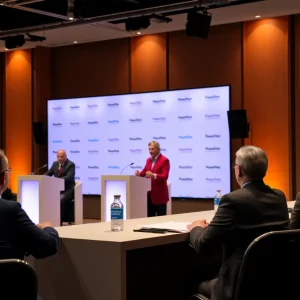Birmingham, Ala. — A Major Turning Point for Discrimination Victims
In a compelling case underscoring the reality of workplace harassment, the University of Alabama at Birmingham has been ordered to pay nearly $4 million to a former cancer research scientist, Dr. Fariba Moeinpour. This significant ruling comes after a lengthy legal battle that highlighted the disturbing treatment the scientist faced during her nine years at the university due to her nationality.
The Heart of the Matter
Dr. Moeinpour, a naturalized U.S. citizen originally from Iran, began her role at UAB in February 2011. Sadly, her time there was marred by daily harassment from a co-worker, identified in her lawsuit as Mary Jo Cagle. The harassment allegedly persisted for *nearly a decade*, with vulgar remarks and threats directed towards Moeinpour, including comments on her name and comments like “go back to Iran.”
In addition to verbal abuse, her suffering escalated alarmingly; there were allegations that Cagle drove her car aggressively towards Moeinpour and her daughter while brandishing a gun and using racial slurs. It’s truly disturbing to hear that Moeinpour felt compelled to report these incidents to human resources multiple times, but claims her cries for help fell on deaf ears.
The Allegations Unfold
The university employee responsible for the harassment allegedly created a toxic work environment, and according to the lawsuit, when Moeinpour expressed her concerns to her supervisor, Clinton Grubbs, she received little support. Shockingly, Grubbs reportedly claimed he could do nothing about Cagle due to fears for his own safety, saying he would “lose his job or be killed.” He went so far as to suggest that Cagle had connections to the mafia.
When Moeinpour attempted to escalate her complaints, she was met with more hostility. The suit describes a disheartening encounter where Grubbs allegedly assaulted Moeinpour, leaving her injured and in a state of distress. She later found herself handcuffed and hospitalized after a police intervention that left her in a vulnerable situation, contrary to what had transpired.
A Glimmer of Justice
Fast forward to recent events, and a federal jury has awarded Dr. Moeinpour a significant sum of $3.8 million in damages, while Cagle was also held financially responsible for her actions, totaling $500,000 in compensatory damages and an additional $325,000 as punitive damages. This verdict stands as a beacon of hope for those who’ve faced similar kinds of discrimination in their workplaces and beyond.
A Testimony of Triumph
In a heartfelt statement, Moeinpour reflected on the impact that this ordeal has had on her life, saying, “Day and night, I was looking for a job, any job, but nobody would hire me because my name was tarnished. Now, my good name has been restored.” Her resilience and determination have certainly paid off.
The University Responds
In response to the verdict, a spokesperson for UAB stated that the institution “does not tolerate harassment, retaliation, or discrimination of any kind.” However, they also voiced their disagreement with the jury’s decision and mentioned plans to consider possible next steps moving forward.
Looking Forward
This incident raises substantial questions about workplace safety, equity, and the protection of employees against harassment and discrimination. As workplaces continue to evolve, it prompts a larger discussion about the policies protecting staff, especially those coming from diverse backgrounds. Dr. Moeinpour’s story is not just one of a single legal case but signifies a growing awareness and push against intolerable behavior in work environments across the nation.
While the battle for justice can often feel lengthy and arduous, this ruling shines a light on the importance of speaking out and seeking accountability. Change can and does happen, and it is stories like Dr. Moeinpour’s that remind us of the necessary fight against discrimination and for fairness in the workplace.


























